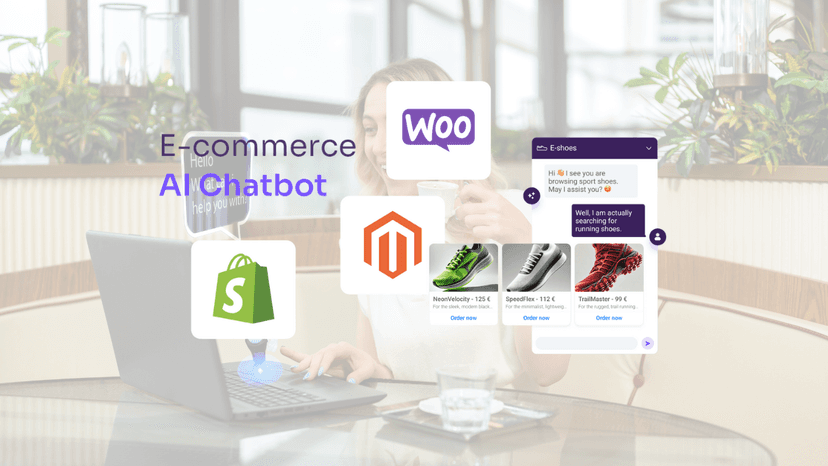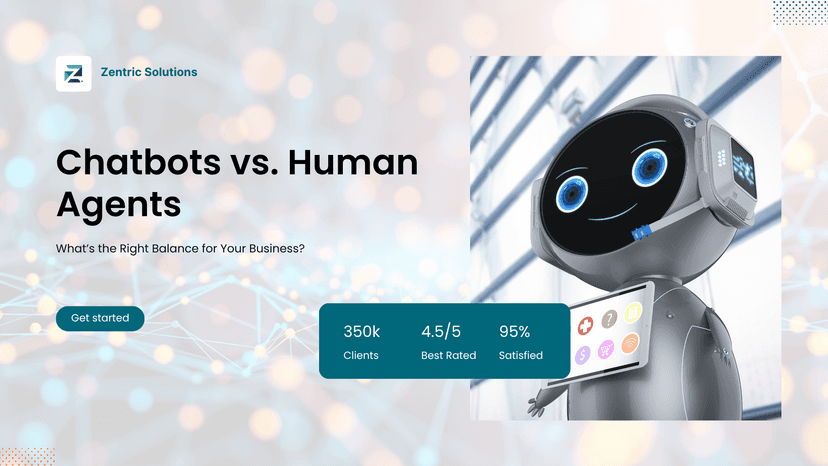
Introduction to Hybrid App Development
Modern organizations now rely heavily on mobile applications in the fast-paced digital environment. Businesses are always searching for efficient and economical methods to connect with their clients across a variety of channels. Services for developing hybrid apps are useful in this situation. With hybrid apps, programmers can make a single app that functions flawlessly on both iOS and Android smartphones while preserving a native-like experience.
As companies look to reduce development costs without sacrificing performance, the need for hybrid app development is growing rapidly. Businesses can create mobile apps more quickly, reach a wider audience, and maintain their competitiveness in the app-driven economy of today by working with the proper hybrid development partner.
What Are Hybrid Mobile Apps?
Web and native application components are combined in hybrid mobile apps. In essence, they are web apps with a native shell that gives them access to device functions like GPS, push alerts, and cameras.
In contrast to native apps, which are developed independently for iOS and Android, hybrid apps operate on several platforms using a single codebase. Because it saves time, money, and resources, this strategy is very attractive to both startups and large corporations.
Difference Between Hybrid, Native, and Web Apps
Businesses can choose the best development technique by matching their objectives with the technical capabilities of each option by being aware of the variations between app kinds. For instance, native apps are made just for one platform, such as iOS or Android, and provide better performance, access to device features, and a smooth user experience. However, developing them for numerous platforms can be expensive and time-consuming. While hybrid apps may lose some performance, they allow for faster development and a wider audience with a single codebase by combining aspects of web and native applications. Because they operate directly in browsers without the need for installation, web apps are the most affordable and accessible choice; nevertheless, their offline capabilities and access to device hardware are limited.#

Hybrid apps are perfect for companies with tight budgets but high performance requirements because they provide a mix between cross-platform flexibility and near-native performance.
Why Businesses Prefer Hybrid App Development Services
Businesses now favor hybrid app development because of its affordability, speed, and adaptability. Hybrid apps use a single codebase, drastically cutting costs and speeding time to market in contrast to native apps, which need separate projects for iOS and Android, tripling both development time and expenses. Businesses may reach a larger audience while providing a consistent user experience across devices thanks to their cross-platform compatibility. Furthermore, because a single update is instantaneously reflected across all platforms, hybrid apps are simpler to scale and manage, facilitating long-term growth.
Businesses favor hybrid app development for a number of important reasons, including:
Economical and Quicker Time to Market
Two distinct projects are needed to develop a native app for iOS and Android, which doubles the expense and time. Conversely, hybrid apps use a single codebase, which enables faster development cycles and lower costs.
iOS and Android Cross-Platform Compatibility
Businesses can reach a larger audience across different platforms without developing separate apps by using hybrid app development. Regardless of the device, this compatibility guarantees a constant user experience.
Scalability and ease of maintenance
It can take a while to update a native app. Hybrid apps make maintenance easier and allow for better scalability as the app expands because they only need one update to reflect changes across all platforms.

Key Features of Professional Hybrid App Development Services
Personalized UI/UX Design for Multi-Platform Applications
A seamless and appealing user experience is essential for a hybrid app to succeed. To make sure the app feels natural on all devices, skilled developers concentrate on UI/UX optimization.
API Integration and Backend Development
Secure API integration to link apps to databases, cloud storage, and third-party tools is one of the professional services offered. This guarantees reliable functionality and seamless performance.
Optimizing Performance and Offline Functionality
These days, hybrid apps may be made to function offline and load quickly, keeping users interested even when they aren't connected to the internet.

Popular Technologies for Hybrid App Development
Strong frameworks and technologies that enable developers to create cross-platform, high-performing apps quickly are driving the growth of hybrid app development. Let's examine the most well-liked ones:
React Native React Native, developed by Facebook (Meta), is one of the most widely used frameworks for hybrid app development.
Advantages:
Near-native performance Large community and library support Hot-reloading feature for faster development
Popular Apps Built: Instagram, Facebook, Airbnb
Flutter Flutter, powered by Google, allows developers to create stunning apps using a single codebase.
Advantages:
Rich UI with customizable widgets High performance and fast rendering Strong support for animation and complex interfaces
Popular Apps Built: Google Ads, Alibaba, BMW
Ionic Ionic is a framework that relies on HTML5, CSS3, and JavaScript to create mobile apps with a native-like experience.
Advantages:
Easy to learn for web developers Extensive library of plugins and components Supports Angular, React, and Vue
Popular Apps Built: MarketWatch, Sworkit
Other Technologies Xamarin: Supported by Microsoft, suitable for enterprise-level apps Apache Cordova: Simple hybrid framework with plugin support Framework7: Perfect for iOS and Android with a web-based approach

Step-by-Step Hybrid App Development Process
A methodical approach is necessary while creating a hybrid mobile application to guarantee that the finished product is effective, useful, and easy to use. Professional developers use this methodical process:
1. Need Getting Together and Making Plans Examine the target audience and corporate objectives. Describe the characteristics and capabilities of the app. Make a development and deployment roadmap.
2. Create wireframes and clickable prototypes for UI/UX design and prototyping
Put an emphasis on consistent cross-platform use and user-friendly navigation. Get client input before beginning any code.
3. Coding and Development Build the application using frameworks such as Flutter or React Native. Install databases, security features, and API integrations. Make sure the app is compatible with all screen sizes and devices.
4. Quality Assurance and Testing Conduct performance checks, integration testing, and unit testing. Find and address issues to provide a flawless customer experience.
5. Implementation and Upkeep Install the app on the Google Play Store and Apple App Store. Continue to maintain, update, and improve features.

Hidden Costs of Mobile App Development: What Businesses Need to Know in 2025
1. Maintenance & Updates
Yearly updates, bug fixes, and OS compatibility checks.
Cost: 15–20% of original development cost per year.
2. Server & Cloud Hosting
AWS, Firebase, or Azure hosting to handle app data.
Cost: $20/month for small apps, $1,000+/month for large apps.
3. Security & Compliance
Encryption, GDPR, and data protection audits.
Cost: $1,000–$10,000+ depending on app type.
4. Third-Party Integrations
Payment gateways, maps, push notifications, chatbots.
Often pay-per-use or transaction-based fees.
5. Marketing & User Acquisition
ASO, advertising, influencer campaigns.
Can match or exceed development costs.

Quick Tips to Reduce Hidden Costs
Choose hybrid development (Flutter/React Native) to save on maintenance.
Plan for scalability with cloud hosting from day one.
Set aside 20% of development cost yearly for maintenance.
Upcoming Development Trends for Hybrid Apps
Integration of AI and Machine Learning
Personalized experiences, predictive analytics, and more intelligent suggestions.
Virtual reality (VR) and augmented reality (AR)
improved apps for commerce, education, and gaming that use immersive technology.
Applications Based in the Cloud
improved storage capacity and real-time syncing for mobile users.
Improved Security Procedures
Blockchain and biometric authentication will be used in hybrid apps due to the rise in cyberthreats.
The market for hybrid apps is anticipated to expand rapidly as companies continue to use cross-platform, cost-effective solutions.
FAQs Regarding Services for Hybrid App Development
1. What is the primary benefit of hybrid applications over their native counterparts? Apps that are hybrid can be developed more quickly, are less expensive, and use a single codebase across several platforms.
2. How much time does it take to create a hybrid application? The development of hybrid apps might take one to six months, depending on their complexity.
3. Can hybrid apps use the camera and GPS on a device? Indeed! Hybrid apps can easily access device features and hardware using native plugins and APIs.
4. In 2025, which framework is best for developing hybrid apps? The most widely used options are Flutter and React Native because of their versatility, community support, and performance.
5. Are hybrid apps appropriate for big businesses? Of course. Hybrid apps may manage scalability and enterprise-level needs with the right architecture.
6. How much does it cost to design a hybrid app? While sophisticated apps with cutting-edge capabilities might cost over $100,000, a simple hybrid app can start at $5,000.
Why Hybrid App Development Is the Smart Choice
For companies looking to reach both iOS and Android customers without increasing their development expenditures, hybrid app development services provide a potent answer. Fast, scalable, and high-performing apps may be launched by businesses with the correct frameworks, skilled developers, and a well-organized methodology.
Hybrid apps will become even more adaptable as upcoming technologies like AI, AR/VR, and cloud integration develop further, making them the preferred option for companies in 2025 and beyond.





